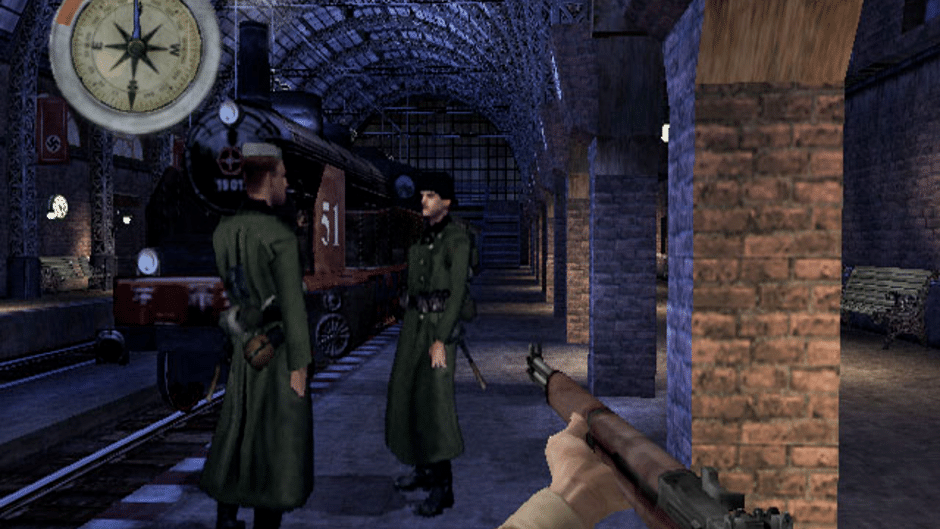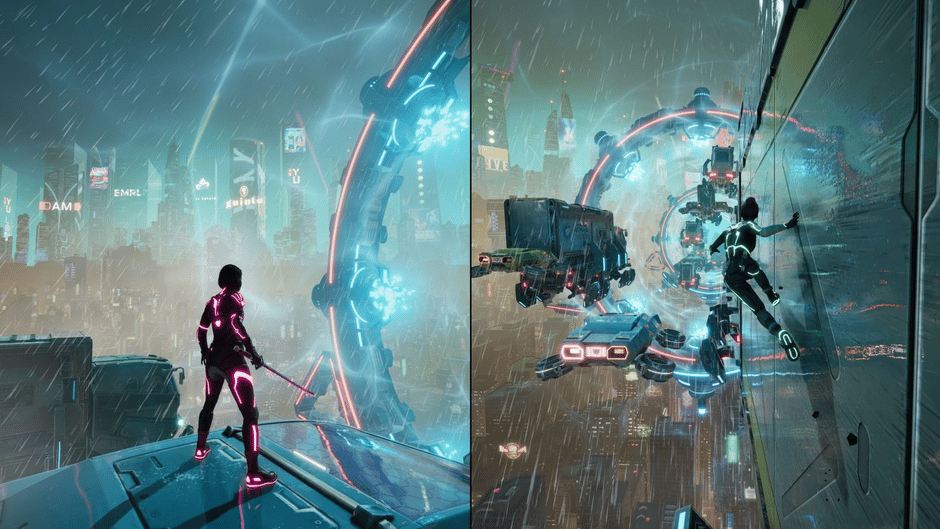Medal of Honor: A Legacy of Honor in Gaming
The Medal of Honor series has been a cornerstone of military first-person shooters since its inception in 1999. As we look back on this iconic franchise in 2025, it's clear that its impact on the gaming industry and its portrayal of historical conflicts continue to resonate with players.

The Medal of Honor series has been a cornerstone of military first-person shooters since its inception in 1999. As we look back on this iconic franchise in 2025, it's clear that its impact on the gaming industry and its portrayal of historical conflicts continue to resonate with players. Let's explore the rich history, evolution, and enduring legacy of the Medal of Honor games.
The Birth of a Legend
Medal of Honor was born from the creative mind of Steven Spielberg, who envisioned a way to educate and entertain players about World War II following his work on "Saving Private Ryan." The first game, released in 1999 for the PlayStation, set a new standard for historical accuracy and immersive gameplay in the FPS genre.
Players stepped into the boots of Lieutenant Jimmy Patterson, an OSS agent fighting behind enemy lines. The game's attention to detail, from authentic weapon models to historically accurate missions, captivated audiences and critics alike. This commitment to realism and storytelling would become a hallmark of the series.
Expanding the Battlefield
Following the success of the original, the Medal of Honor series quickly expanded. Titles like "Medal of Honor: Underground" and "Medal of Honor: Allied Assault" brought the intense WWII action to new theaters of war and platforms. "Allied Assault," in particular, is remembered for its breathtaking D-Day landing sequence, which set a new bar for cinematic gameplay experiences.
As the series progressed, it continued to explore different aspects of World War II. "Medal of Honor: Rising Sun" took players to the Pacific theater, starting with a harrowing recreation of the Pearl Harbor attack. These games not only provided entertainment but also served as interactive history lessons, introducing players to the complexities and heroism of the war.
The Shift to Modern Warfare
In 2010, the Medal of Honor series took a bold step into modern combat with its reboot simply titled "Medal of Honor." Set in Afghanistan, the game aimed to tell the stories of contemporary soldiers fighting in ongoing conflicts. This shift was controversial but demonstrated the series' willingness to evolve and tackle current events.
The 2010 release featured a split development, with Danger Close handling the single-player campaign and DICE creating the multiplayer component. This approach aimed to deliver a cinematic, story-driven experience alongside competitive multiplayer that could rival other modern military shooters.
Multiplayer Evolution
Throughout its history, Medal of Honor's multiplayer offerings have been a crucial component of its success. The 2010 reboot introduced a class-based system with Rifleman, Special Ops, and Sniper roles, each with unique loadouts and progression paths. This system allowed players to specialize their playstyle and work together in tactical team-based modes.
Multiplayer modes like Team Assault, Sector Control, and Objective Raid provided varied gameplay experiences, from straightforward team deathmatch to objective-based challenges. The introduction of support actions, such as mortar strikes and missile attacks, added an extra layer of strategy to the fast-paced combat.
Technical Innovations
The Medal of Honor series has often been at the forefront of gaming technology. The 2010 release, for example, utilized a modified Unreal Engine 3 for its single-player campaign while employing DICE's Frostbite Engine for multiplayer. This combination allowed for stunning visuals and destructible environments that enhanced the realism of both modes.
As the series progressed, it continued to push technical boundaries. Enhanced graphics, more sophisticated AI, and improved physics systems all contributed to creating increasingly immersive war experiences. The attention to detail in weapon handling and environmental interactions set new standards for authenticity in military shooters.
Storytelling and Character Development
One of Medal of Honor's greatest strengths has always been its storytelling. From the early games' focus on unsung heroes of World War II to later entries exploring the complexities of modern warfare, the series has consistently delivered compelling narratives. Characters like Jimmy Patterson and John Baker became iconic figures in gaming, representing the courage and sacrifice of real-world soldiers.
The 2010 reboot and its sequel, "Warfighter," attempted to bring this storytelling prowess to contemporary conflicts. By focusing on Tier 1 operators and their personal stories, these games aimed to humanize modern warfare and pay tribute to those serving in today's military.
Educational Value
Throughout its history, the Medal of Honor series has maintained a commitment to historical accuracy and education. Many games in the series included unlockable historical content, providing players with real-world context for the missions they were undertaking. This blend of entertainment and education has been a unique selling point for the franchise, appealing to history enthusiasts and gamers alike.
The series' attention to detail in recreating historical weapons, uniforms, and battlefields has also made it a valuable resource for those interested in military history. While taking some creative liberties for the sake of gameplay, Medal of Honor has always strived to respect the real-world events and people it portrays.
Challenges and Competition
As the FPS genre evolved, Medal of Honor faced increasing competition, particularly from the Call of Duty and Battlefield franchises. The rise of modern military shooters, epitomized by "Call of Duty 4: Modern Warfare," presented a significant challenge to Medal of Honor's World War II focus.
The series' attempt to modernize with the 2010 reboot and "Warfighter" received mixed reactions. While praised for their authenticity and storytelling, these titles struggled to differentiate themselves in an increasingly crowded market. This led to a hiatus for the franchise, with the last major release being "Warfighter" in 2012.
Virtual Reality and the Future
In 2020, Medal of Honor made a surprising return with "Medal of Honor: Above and Beyond," a virtual reality title for the Oculus Rift. This game brought the series back to its World War II roots while leveraging VR technology to create an unprecedented level of immersion. Players could physically interact with weapons, climb ladders, and even ski as they fought through various European theaters of war.
The VR entry showcased the potential for new technologies to reinvigorate the franchise. As we look to the future, the possibility of more VR titles or even augmented reality experiences could offer exciting new ways to engage with the Medal of Honor series.
Legacy and Impact
As we reflect on the Medal of Honor series in 2025, its impact on the gaming industry is undeniable. It popularized the World War II shooter genre, set new standards for historical accuracy in games, and pushed the boundaries of storytelling in first-person shooters. The series' influence can be seen in countless military-themed games that followed.
While the franchise may not be as prominent as it once was, its legacy lives on. The commitment to honoring real-world soldiers, attention to historical detail, and blend of education and entertainment continue to inspire game developers and resonate with players. As gaming technology advances and new conflicts shape our world, there will always be a place for games that remind us of the sacrifices made by those who serve.
Conclusion
The Medal of Honor series stands as a testament to the power of interactive media to educate, entertain, and pay tribute to real-world heroes. From its groundbreaking debut to its forays into modern warfare and virtual reality, the franchise has consistently pushed the boundaries of what military shooters can achieve. As we look to the future, the enduring appeal of Medal of Honor's brand of historical action ensures that, like the heroes it portrays, this series will not be forgotten.





